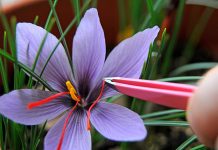During the coldest months of the year, the flowers that are found in the garden, terrace or balcony of our house can hardly ignore the inclemency of the weather, that is why it is important to protect them so that they successfully overcome this season and are perfect to live all the splendor of spring. But where to start, in unComo.com we explain to you how to take care of flowers in winter with some useful tips.
Also read: 5 Low-Maintenance Plants That Can Make Anyone A Gardening Expert
Steps to follow
- It is very important to remember that the needs of our flowers vary according to the stage of the year in which we are, in the case of winter it is not necessary to water them too often or you run the risk of the roots rotting. A little water is enough.
- The care of the flowers in winter will increase if in your city the temperatures go down from 0º. In those cases it is recommended that you cover the base of the flowers, that is to say, the soil where they are planted, with dry leaves. This will help protect the roots from the cold and prevent them from freezing.
- Take into account the possibility of moving the flowers to a shed or placing them inside the house in case the temperatures drop too low, take into account that some types simply do not resist too low temperatures. If you choose to do this, remember to place them in a place where they receive sunlight and keep them away from heaters.
- It is important that our flowers have fertilizers during the winter months, but the best thing is to resort to natural alternatives, for example, eggshells and fruit peels such as orange or banana are an excellent and economical option that will be very beneficial for them.
- During the winter due to humidity and weather conditions plants are more prone to suffer from fungi, so it is very important that you apply special products to prevent their proliferation, likewise, apply insecticides, so you get to keep your flowers healthy.
Translated and adapted by Noobuzz staff.
Sources: Uncomo







